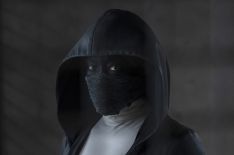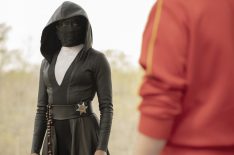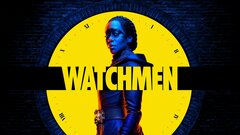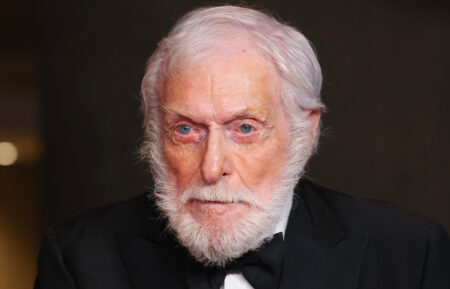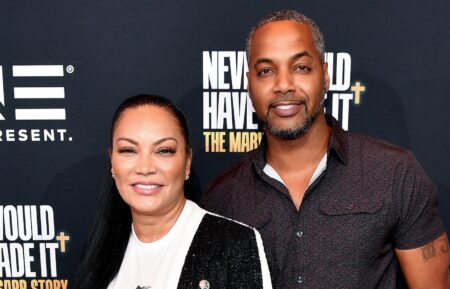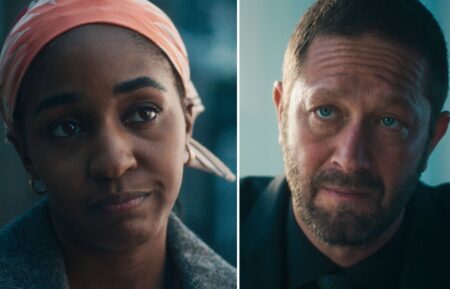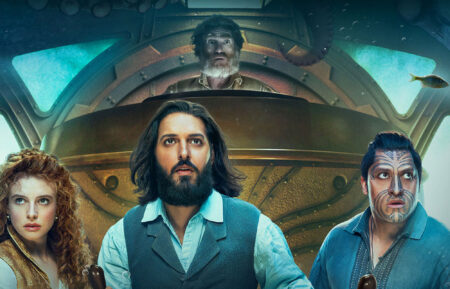Haunting Memories and Dark Secrets in ‘Watchmen’ Episode 2 (RECAP)
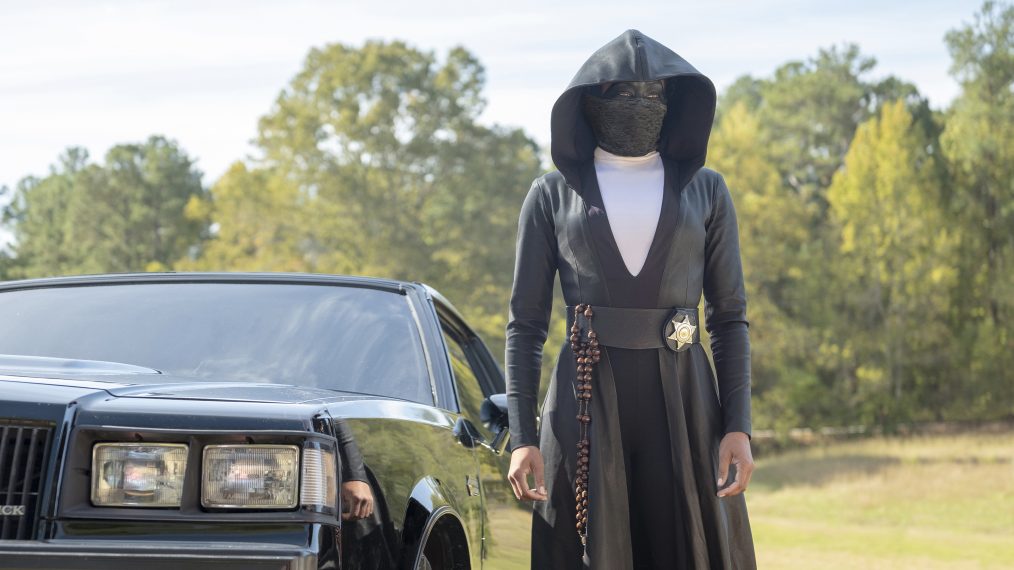
Spoiler Alert
[Warning: The below contains MAJOR spoilers for Watchmen Episode 2, “Martial Feats of Comanche Horsemanship”]
You cannot reason with time — it cannot be stopped or slowed down or changed. It keeps ticking along and moving forward. The world turns, seasons pass, and people die. And yet the past is forever tethered around our waists like a lasso. Whether it’s fond memories of childhood, the comfort of nostalgia, or old lingering trauma, the past not only shapes who we are as individuals, but it forms the basis of our cultural identity.
Watchmen is a show with its eyes firmly set on the future, but the vision of that future is framed within the past — a dark, regretful past. The second episode, “Martial Feats of Comanche Horsemanship” (written by Damon Lindelof & Nick Cuse and directed by Nicole Kassell), serves as a brutal reminder of humanity’s past digressions, shedding light on both individual characters and American history. This is not a sentimental trip down superhero memory lane — it is a cruel dose of reality.
The episode title itself is a reference to a 19th century George Catlin painting, which depicts a First Nation tribe in combat during the American Indian Wars. (The picture is seen hanging in Chief Judd Crawford’s home later in the episode.) It’s a striking image that reminds us that America, as we know it, has been embroiled in cultural clashes and bloody brutality since its birth. The show’s terrorist group, the 7th Kavalry (a direct reference to the branch of U.S. military led by General Custer in the Indian Wars), is a continuation of a story as old as time.
America’s troubled history with race remains at the forefront of Watchmen‘s second episode, starting with a flashback to African American troops marching through Germany in World War I. A German general sends a letter to the black soldiers asking why they would fight for a country that doesn’t afford them the same rights as its white citizens. It’s a piece of propaganda designed to cause dissension, and yet there is a painful truth contained within the message all the same.
Much like the Tulsa race riots of 1921 — which we saw dramatized last week — this is a past America is still atoning for in 2019. In the world of Watchmen, that comes in the form of “Redfordations,” a government compensation scheme introduced by President Robert Redford for the survivors of the Tulsa massacre and their direct descendants. “We hope to right the wrongs of a dark past so we might all share a bright future,” states the automated video at the Department of Treasury.
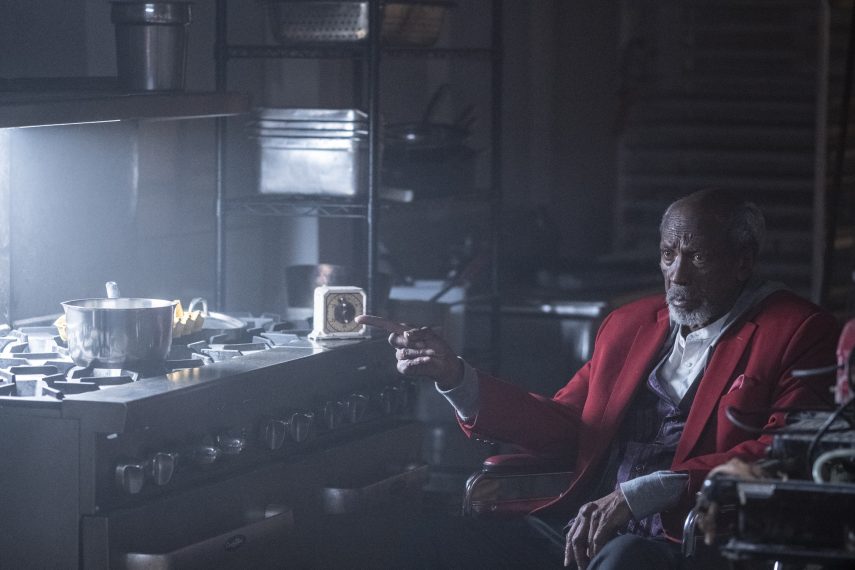
HBO
One such survivor of the Tulsa attack is Will (Louis Gossett Jr.), aka the mysterious old man in the wheelchair, who it’s confirmed is the same little African American boy introduced in the premiere. Will has seen a lot in his 105 years on earth — and knows a lot too. There is no sense of concern or fear when Angela (Regina King) places him in cuffs and locks him up in the back of her bakery. This is a man who has experienced and survived far worse situations. He calmly (and proudly) claims responsibility for the murder of Chief Crawford (Don Johnson), who he says had skeletons in his closet. But it’s hard to know if we should take Will seriously when he also claims to be a Dr. Manhattan clone with psychic powers.
The more likely culprit for the Chief’s murder, in Angela’s eyes, is the white supremacy group, the 7th Kavalry. The organization already shot one cop last week and made their intentions quite clear. They want to see the streets flow with liberal tears. It’s violence predicated on hatred — reactionary attacks because of Refordations and other progressive rights implemented in recent years. And this isn’t the first time the 7K has led a coordinated assault on members of law enforcement; in fact, this whole situation brings up hellish memories for Angela herself.
We flash back to the White Night — a tragedy that took place several years ago when the 7K launched an organized attack on Tulsa cops. Angela and her husband, Calvin (Yahya Abdul-Mateen II), were ambushed in their home on Christmas Eve; what could have been the setting for a Hallmark Christmas card suddenly transformed into a living nightmare. While Angela and Calvin survived the shooting, that infamous night changed everything. Tens of officers were slaughtered in their own homes, including Angela’s partner and his wife. (We learn that Angela adopted her partner’s kids.) The cops that lived through the ordeal immediately resigned from the force for their own safety.
Quitting is not in Angela’s DNA, though. While she may have publicly “retired,” she continues to hunt criminals, now disguised behind a mask and a leather hood. Angela rarely stops to take a breath or even shed a tear. “It’s okay to cry,” Crawford tells her as she’s laid up in a hospital bed after the White Night attack. “Maybe later,” she replies. Like time itself, Angela keeps pushing forward because if she stops, even for a moment, she is liable to explode.
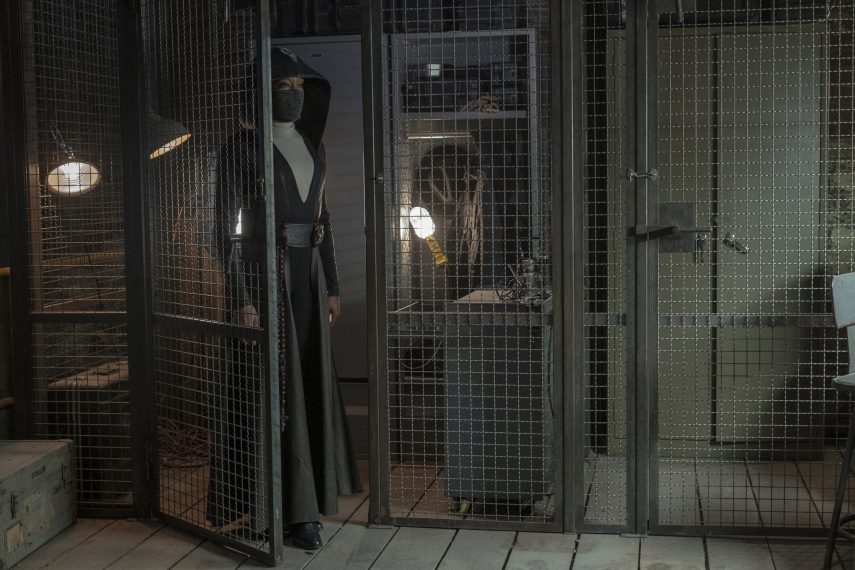
HBO
There is an inner rage that Angela has carried with her for a long time. She puts on a brave face in public and to her husband, pretending that everything will be okay. But in rare moments, we see it boil over. She screams and slams her weapon against a wall moments after finding Crawford’s body, and when provoked into a fight by a Nixonville resident, she relentlessly pummels his face into a bloody mush (Trent Reznor and Atticus Ross’ score is at its most disconcerting here).
Angela’s story is mirrored by the first episode of American Hero Story — the Ryan Murphy-style show-within-a-show, which this week tells the story of America’s first masked vigilante. “What could I do with all this anger?” the masked-man asks. “I never felt comfortable in my own skin, so I made a new one. And when I slipped it on, he and I became one. His anger became mine, as did his thirst for justice. Who am I? If I knew the answer to that, I wouldn’t be wearing a f**king mask.” It doesn’t get more on the nose than that.
There is one person Angela is upfront with, however, and that’s her son Topher (Dylan Schombing), who has suffered with his own share of trauma. “There are people who think this world is fair and good, that it’s all lollipops and rainbows,” Angela says as she tells Topher that “Uncle Judd” is dead. “I remember what happened to my parents. You remember what happened to your parents. You and me, we don’t do lollipops and rainbows because we know those are just pretty colors that hide what the world really is… black and white.” It’s a bleak worldview, but one informed by experience; Angela is a product of her past.
It’s a past that never seems to go away. Even the so-called good in this world comes with a clause or a dirty secret — like the KKK cloak hidden behind a secret door in Crawford’s closet. And that’s not the only secret Angela uncovers this episode, as she also learns that Will is her grandfather. Her story is tied to Tulsa’s past, perhaps even more so than she ever realized. “I want to show you where you came from,” Will tells her. While Angela might be reluctant to humor the cryptic grandpa right now, I, for one, am itching to find out more. We’re going to have to wait, it seems, as Will is transported out of Angela’s custody by some sort of spaceship magnet.
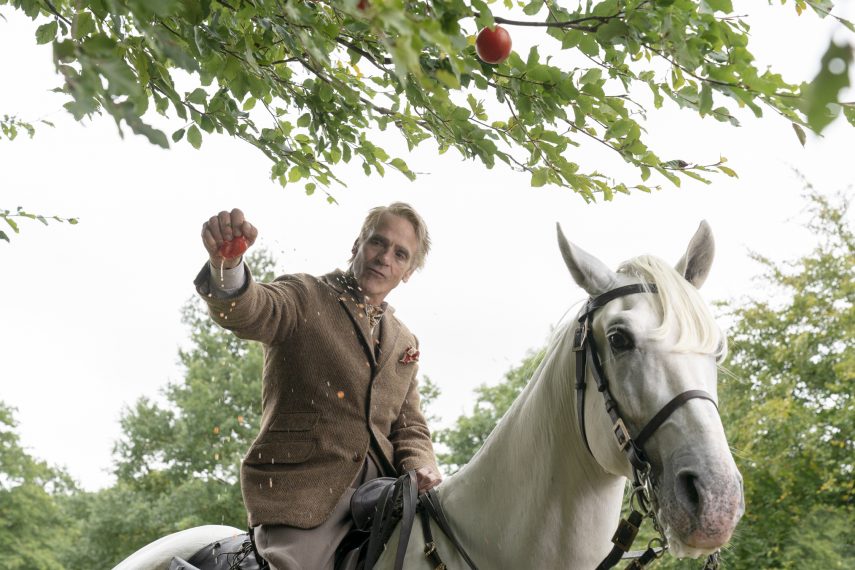
HBO
Another character reliving the past this episode is Jeremy Irons’ castle-dwelling eccentric, who I think we’re all convinced is classic Watchmen anti-hero, Adrian Veidt. The reclusive Veidt orders his gaggle of servant clones (yes, he has clones) to perform his self-penned stage-play, The Watchmaker’s Son, essentially the origin story of Dr. Manhattan. This reenactment includes a nude clone smeared in blue paint like Tobias in Arrested Development and the literal incineration of another clone inside the “Intrinsic Field Generator.”
It’s a delightful bit of absurdity, and Irons is quite clearly having a ball in this role. It’s also a refreshing way to introduce material from the comics, rather than merely rehashing scenes from the Zack Snyder movie. The tongue-in-cheek American Hero Story fulfills a similar function, providing brief snippets of the Watchmen origin story via tabloid-style melodrama. This is the kind of playfulness I wanted more of last week, so I’m happy to see the show leaning that way; it helps break up the unrelenting tension.
We’re only two episodes in, but so far, Watchmen is building a pretty expansive world for itself, one which looks to the future but never forgets its past.
Additional Notes
-There were a couple of brief world-building scenes that I really enjoyed this episode. The first was the two men discussing the “squidfalls” and whether it’s a real event or a “false flag” situation meant to distract the masses while their rights are taken away. The other was the paparazzi wearing malfunctioning remote-controlled wings to fly over crime scenes and take pictures. I feel like the head honchos at TMZ are working on that technology as we speak.
-We also met Senator Joe Keene (James Wolk) this episode, who introduced himself to Angela during Crawford’s wake. For those not familiar with the comic, Joe Keene is presumably the son of Senator John David Keene, the politician who outlawed masked vigilantes in 1977.
-“He was alive the whole time. Until he wasn’t.” I hope we get to see more of Tim Blake Nelson’s Looking Glass in future episodes because I’m loving his sardonic asides.
-Nice to see Deadwood alum Jim Beaver pop up in this episode as who I assume is the grandfather of Angela’s kids. He’s clearly not on good terms with the family though, given the tense interaction between Angela and himself.
Watchmen, Sundays, 9/8c, HBO
From TV Guide Magazine
How 'Countdown' Recruited Jensen Ackles to Go Full 'Die Hard'
Countdown boss Derek Haas talks creating the character around Ackles, and the cast teases the “Avengers”-like team of the crime thriller. Read the story now on TV Insider.



